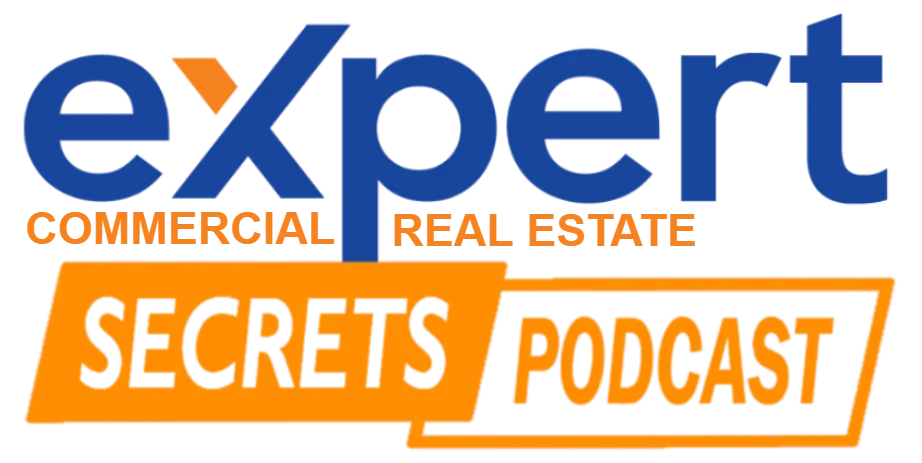
Talking Real Estate with Brett & Jon
December 2, 2021

“I think the tough part comes, is that you always have to be growing your skillset, you always have to be growing your craft, and you want to stay on the plateau, and by doing the same thing and being consistent every day. It's not. It's not always sexy and fun, but it's consistent, and that's what you need. That's the key.”
When Jon turned 43, he made a career out of being himself. He is an executive advisor, business coach, sales coaching, training, and management coaching, training keynotes, and Founder/Chief Executive Officer of The Jon Dwoskin Experience.
He's been called the “business whisperer” because he can see what you cannot see and hear what you cannot hear at your company. His passion extends to myriad non-profit organizations including sitting on the board of Hebrew Free Loan and, as an 18-year cancer survivor, being a mentor with Imerman Angels.
.
Watch the episode here:
Listen to the podcast here:
Talking Real Estate with Brett: & Jon: June 26 Episode
Jon:
Hi everybody looking forward to sitting here with Brett Swarts Capital Gains Tax Solutions, and we're just talking real estate today, commercial residential really, and how to really grow your business, and what we wanted to chat about today we're going to talk about is thinking about your business over the summer. We're sitting here, it's June 25, 2021. Get July 4, around the corner, and come back post-July 4, ready to really accelerate your business hyper-focus, so you can finish the year strong. I think it's really important, and so I think first, and we've talked about this before, Brett, I think first, the important thing is, you got to be in the mindset that you're going to enjoy the summer. But you're also going to have a very specific and measurable detailed business plan to be hyper-focused and continue to drive those eating activities that build your business, it's not the time to fully go to the sidelines, and I say that because I think a lot of people are feeling freedom for the first time in going on meetings going to events, and so it's gonna take a little extra mind power to hyperfocus into that.
Brett:
I can agree. I can agree with you more. It’s easy to go back to old habits or bad habits. Especially when when when change happens, and the change is happening for the positive now, with more freedom, more opportunity, more travel, all of the things that we so much enjoyed, part of I think the blessing of COVID was it forced people to work really hard and adapt, and at least it did for me because I was like I'm gonna be stuck not being able to do things. Commercial work, and so worked a lot and got online, got on YouTube, got on Podcasts, more and more clients via the zoom, and just not getting in cars. Now it's the opposite. It's, as the pendulum swinging from one spot to the other, and you're absolutely right, getting focused on the fundamentals again, and not taken to the other side. Jon, I think you're saying.
Jon:
I think focusing and saying, what's my business plan? So I think a lot of people are gonna start to check out Wednesday, Thursday of next week, and enjoy the 4th of July weekend. That Monday is a holiday Tuesday, people get ramped back up. But I think you want to be ready with your July and August business plans. Now when you get back to like, six, how many calls you're making a day, how many centers of influence you're calling every day, how many meetings, you want to go on a week, how you're, what your marketing is going to be, all of that type of stuff that is so important to do now?
Brett:
I'm curious, Jon, your experience, you trained and coached amazing commercial real estate brokers over the years, and other professionals now, as your business coach now, what? What are those key metrics, and more, not just that, but how are the best measuring that on a daily, weekly, monthly quarterly basis?
Jon:
I think those metrics are phone calls, meetings. The proposal, whatever it is, getting those, whether you're in commercial or residential, are, are setting those standards. I'm going to make X amount of cold calls a week, I'm going to make X amount of cold calls a day, I'm going to make X amount of calls to my past clients, I'm going to make X amount of calls to my centers of influence, I'm going to market the following and have a very detailed editorial calendar, and that editorial calendar is gonna look like this X, Y, and Z. Every Monday, I'm going to post this, every Wednesday. I'm going to post this every Tuesday. I’m posting this very, very specific, and time-blocking everything to make time that you're doing it and really utilizing your CRM in a very detailed way. Not only are your time blocked using your CRM, and very focused on being a student of your calendar and executing at just a very high level. If we don't, then we're going to hit our labor hit Labor Day, feeling like we're behind.
Brett:
Phone calls, meetings proposals, BOVs I like the way you put calls to past clients like an XML number. You don't forget opportunities for referrals, and as well as taking care of your clients and setting a calendar for also posting, you may personally deal with close stories or new listing opportunities or something of value that could help you help your clients and help your help to reach out to more senators of influence. Time blocking and CRM. The 8020 principle comes to mind here. Jon. 20, let's say 80% of our product. Our results come from 20% of our actions. Yeah, and so how can someone implement that with the things that you just said?
Jon:
Implement the?
Brett:
The action steps, like what maybe what's the biggest challenge? When it comes to? Is it time blocking to get these things? Because we know, these things are right, and we got it. You got it.
Jon:
It's all about execution. To me, that's a differentiator of good to great, great to exceptional. Do you have the discipline and the resilience every day to come to work? Whether you're going to a home office or an office, it doesn't matter. Can you execute? Are you prepared every single day? Tonight, I'm preparing all my calls for tomorrow. Tonight, I'm getting my calendar ready for tomorrow. Tonight, I'm setting my plan for tomorrow, and then you come and you execute. That's the key time blocking and execution. A lot of the stuff we're talking about is not so simple. It's complicated, and it's repeatable. The app, I think the tough part comes, is that you always have to be growing your skillset, you always have to be growing your craft, and you want to stay on the plateau, and by doing the same thing and being consistent every day. It's not. It's not always sexy and fun, but it's consistent, and that's what you need. That's the key.
Brett:
I also want to dive into a strategy that has helped me over the last year, and it's the idea of building a team to help you design delegates and decide and do things. For example, one of the biggest things that we've been told as real estate professionals, as sales professionals, is to get on video and create content, and it can be daunting to consider. I'll get on a video, but then I got to edit the video, and then I've got to, post the video, and then I'm a full-time video person now versus doing the thing that I love to do, which is being with my client and solving problems, and presenting solutions for people, and so when it shifted for me was I hired a team, I hired a team or started with just one, and I started to delegate those tasks. I would create the content, and then she would edit the content and post the content. That's my executive assistant, and we quickly moved to another assistant who has a full-time videographer, and then another assistant has a full-time podcast and kind of YouTube blog part, a profession, and now we have five, and it's really centered around these four things, and these four things are the four D’s and the first one that we typically get caught in is the doing part.
The doing part of whether it be editing the blog, or editing the video post, or even making the content, end of the day, the highest and best use, for most professionals is what we're doing now at creating the content being face to face with clients. It's not necessarily doing all of the editing and the back-end work, the operations work if you will. The second thing is that we get caught in the decision. Where if you hire a team member, how much time and energy is it taking, when I first started doing or building a team, it was like, wow, I feel like there's more work on me because they're coming at me for questions, and I spend my whole day just answering questions, and not getting the actual work that's most important done, and it's like, well, I'll just go back to doing myself if you get caught in this trap. But it's empowering those professionals that are on your team with information and the confidence to make decisions on your behalf and the vision of the company where you're moving forward to. That's the second thing. How do you move the decisions from yourself to having to make them all and empower your teammates to do that? I'm going to pause on those two before we get to delegate and design. What do you say?

Talking Real Estate: “There have been few things in my life which have had a more genial effect on my mind than the possession of a piece of land.” – Harriet Martineau
Jon:
Keep ongoing. I think it's great. Keep ongoing.
Brett:
The next one will be a delegate. Ideally, we delegate. We know who needs and wants to delegate. But the problem is, as entrepreneurs and professionals, we're very, very confident in what we do, and we're like, I can do this better than anybody else. Why? Why do I delegate? I can get it done faster, quicker and better. I'm either afraid it's gonna make me look bad or it's not gonna be as great of a product for my client, and therefore, I'm just gonna control this thing, and therefore, guess what, your business is not really gonna grow as much as you could have. As I delegated more, as I empowered more, by the way, this takes training. You don't want to just, throw someone out in the middle of a lake way, who hasn't learned how to swim yet right and expect them to perform well but learning the art and science of delegating properly, and the last one is designed, and this is really where things make a huge difference when you can start to look at a big view, and design your business, and spend most of your time and energy designing versus again.
Just the doing part, and so we're all constantly making decisions every single day, and I've been asking myself this week, Jon, am I designing and delegating more, which is really the goal. That's the goal I want to do is to top, top, top DS, or am I deciding and doing, and again, some things you're always going to do. Because you do it best, and it's back to the 8020 rule 20% of what I do produces 80% of the results, and so for me, I found that being on the podcast, creating YouTube content, face to face our Zoom with clients, and even sometimes underwriting properties or solving problems on the tax deferral side of things. Those are certain things I can only do. But there are also other things that I should never be doing right, things that other people can probably do better than me, but take away from the things that I'm uniquely gifted to do. Does that make sense Jon?
Jon:
I think you hit on one of them I mean, a lot of great points, but one of the biggest issues is that people are afraid to delegate, they think that nobody can do it better than them, and to me, I always say to people, what's your What do you, how do you allocate your price per hour, it doesn't matter if they say 100, 200, 300, 40,0 500, 1000 or more, it's then once they start realizing a lot of the things that they're doing are 10, 15, 20, 30, 40, 50-hour activities, and they should be doing leading activities that are generating $500 an hour, it starts to shift everything, and I think that's critical. No, you bring up some great points, and that's and getting focused for the summer, July, August. you can start Labor Day with kind of your labor day through the end of your business plan, and just take it in small chunks. I think that and then you execute and you commit to the process. Your key, I think those are great tools.
Brett:
In the very beginning, you mentioned time blocking. I think it has to start with taking an assessment and underwriting your time and your energy over the course of a week. and then underwriting based upon like, okay, for this next hour, or First of all, what am I doing all week. Let's just track what I've been doing this past week, and do that for five straight days and say, all right, I checked my email this time, and I checked it again, and this time, and then I responded this time, and then I underwrote a property this time that I cold call this and, the random acts of cold calling versus just focusing like a laser for the next hour and making 50 calls, right instead of three meetings, versus doing random acts of cold calling. first of all, takes an assessment of where is your time and energy and I and I did this, I mean, I took a little training course on this, and it was eye-opening. Where I said, well, what am I actually doing? Then what is the goal? I created my Google Calendar, like the ideal wee. I'm going to for me, it's reading the Bible, praying, meditating in the morning, and my Miracle Morning, and then it's time to not check email.
But this is, by the way, one of the things that I've learned, I've been able to delegate slowly, a chunk of the emails, where my assistant along with me, is reading and looking and being able to respond to certain things that I don't need to respond to see. about 40% or 50% of the emails over the past six months, I've slowly been able to be delegated to her. But I assessed when I looked at emails, and for me, I found it's best for me not to look at emails in the morning. Have her look at it first. Do the best she can to respond to the things that she can solve, and then mark the ones that perhaps she does not really sure how to solve. Did I go back and solve those? But event but she's learning along the way. it's teaching and training her, to be able to be an empowered team member there. Versus me just getting up in the morning be like, I'm just gonna do this thing, and it's gonna just solve this thing and you get those quick wins in your mind or emotion like, I got these. I'm solving these things. Well, at the cost of what is right your time and your energy that you could be doing what cool calling right warm. The things that are higher and better use for yourself and for your clients versus just checking emails. If that makes sense, Jon, I'd appreciate it.
Jon:
No. 100%. I mean, I think if anybody can walk away with this and track their time for three to five days, amazing. It'll be eye-opening, and if you want to double, triple, quadruple, quadruple your business. I mean, listen to this, two or three times because we've given so many fundamental things for people to work out. I think that's a wrap. I mean, that's a lot of content. For I think, somebody to digest, and I think it's great. I think it's great. tell people about you, and what you can do for that?
Brett:
We help Commercial Real Estate Agents, luxury brokers help their clients Defer Capital Gains Tax, when they sell highly appreciated assets, and so we help them grow their business by solving problems for their clients, especially when it comes to Capital Gains Tax Solutions, capitalgainstaxsolutions.com learn more about that, or experttaxsecrets.com to learn more about that, and we have a YouTube channel that stuff but the heart of it, Jon, it's we'd like to solve problems like to say we're a business. I'm in the business of selling a Tax Deferral Strategy, John's not in the business of just being a business coach, we're in the business of solving problems for the people that we believe we've been called to serve. And so for you, Jon, tell folks who, because people can hear this on my station, too. tell me a little bit more about them. Tell them more about what you do.
Jon:
I'm a business coach. I work with solopreneurs to fortune 100 companies and everything in between. I work with successful people who are stuck and get them unstuck consistently unstuck, and I love it. jondwoskin.com and I got a book. I got an E-book and tons of resources, lots of videos, and some group coaching one on one group coaching or everything's free on my website.
Brett:
Amazing. Jon. Jon’s got me on stuck. Cool Jon, I think that’s a wrap. We'll be back next week. We'll be talking about something.
Jon:
It’s July 4th week. two weeks. All right, good man. This was fun. Always a good time. I appreciate it. Thanks, everybody.
Brett:
Thanks, Jon.
SUBSCRIBE & RATE OUR PODCAST
⭐ ⭐⭐⭐⭐
on your preferred podcasting app.
important links:
love the show? subscribe, rate, review, and share!
⭐ ⭐⭐⭐⭐




